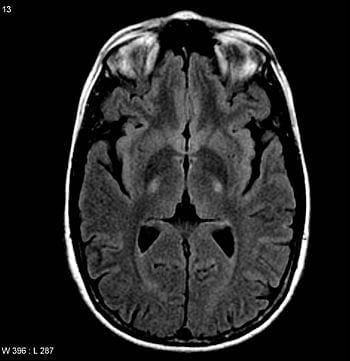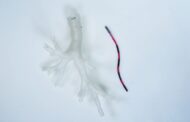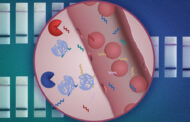Improved diagnosis and management of one of the most common cancers in men – prostate cancer – could result from research at the University of Adelaide, which has discovered that seminal fluid (semen) contains biomarkers for the disease.
Results of a study now published in the journal Endocrine-Related Cancer have shown that the presence of certain molecules in seminal fluid indicates not only whether a man has prostate cancer, but also the severity of the cancer.
Read more . . .
The Latest on: Prostate cancer biomarkers
[google_news title=”” keyword=”Prostate cancer biomarkers” num_posts=”10″ blurb_length=”0″ show_thumb=”left”]
via Google News
The Latest on: Prostate cancer biomarkers
- Discovery of Prostate Cancer Biomarkers by Microarray Gene Expression Profilingon April 11, 2024 at 5:00 pm
During the past two decades, cancer biomarker discovery has been boosted by the advent of new technologies for high-throughput molecular profiling, such as microarray analysis and mass spectrometry.
- Here's How Often Low-Risk People Should Be Tested for Prostate Canceron April 9, 2024 at 9:08 am
New research is helping to better inform patients and doctors about when it is appropriate to seek out PSA testing and subsequent screening. For low-risk men, a PSA test once every 5 years may be ...
- Discovery of Prostate Cancer Biomarkers by Microarray Gene Expression Profilingon April 7, 2024 at 5:00 pm
Cite this: Discovery of Prostate Cancer Biomarkers by Microarray Gene Expression Profiling - Medscape - Jan 01, 2010. * Studies using microdissected samples. All other studies used grossly ...
- PSA and Biomarker Testing Plus MRI Appears to Improve Prostate Cancer Screeningon April 5, 2024 at 9:00 pm
A single round of prostate cancer screening that included a prostate-specific antigen (PSA) test, a kallikrein panel, and an MRI detected one additional high-grade cancer per 196 men and one low-grade ...
- Can AI solve cancer’s diagnostic woes?on March 28, 2024 at 5:00 pm
The discovery of new biomarkers is especially pressing because cancer diagnostic and prognostic tests are less accurate than we might like to think. Take prostate cancer, for example. In a 2018 ...
- BioSpy’s Prostate Cancer Screening Breakthrough Runs on Rymedi's Blockchain-Enabled Clinical Diagnostics Platformon March 26, 2024 at 10:29 am
GREENVILLE, SC / ACCESSWIRE / March 26, 2024 / Rymedi is proud to announce its newest collaboration with BioSpy, the creators of Prostate IQ®, a next generation prostate cancer screening test.
- Mutation Linked to Increased Risk of Prostate Cancer Mortalityon March 19, 2024 at 5:00 pm
Use of HSD3B1 as a biomarker could help identify patients ... "Despite the associations with prostate cancer mortality, homozygous adrenal-permissive inheritance was not associated with prostate ...
- Prostate cancer biomarker test in clinical trials (IMAGE)on February 8, 2024 at 4:32 am
15 years of painstaking research into prostate cancer has now paid off for UniSA Professor Doug Brooks, with the launch of a new biomarker test in clinical trials. Disclaimer: AAAS and EurekAlert!
- Prostate Cancer Newson January 21, 2024 at 4:00 pm
Until now, the precise mechanism ... New Prostate Cancer Biomarkers Provide Hope to Millions of Men July 19, 2023 — Three new biomarkers for prostate cancer have been identified to help pinpoint ...
- Cancer Biomarkers Groupon October 20, 2023 at 11:37 am
I am a bioinformatician working in the Cancer Biomarkers and Translational Therapeutics Teams at the Institute of Cancer Research. I work with next generation sequencing data to understand prostate ...
via Bing News








